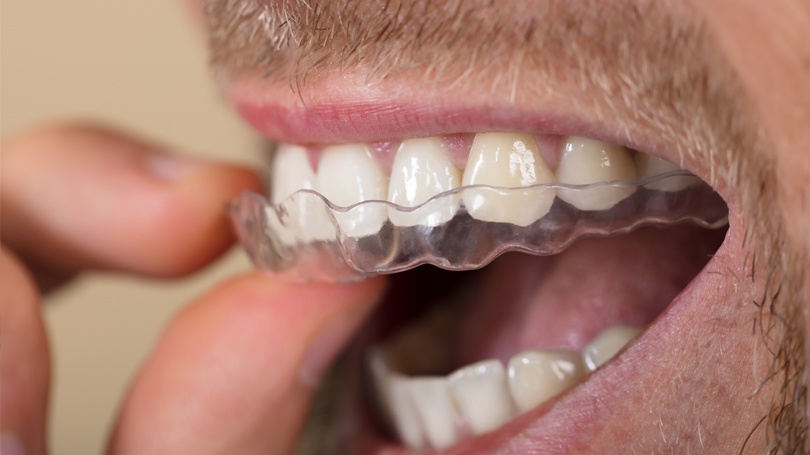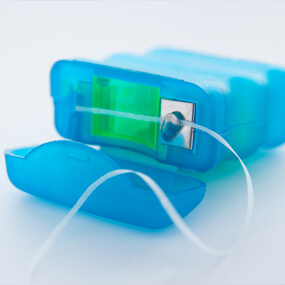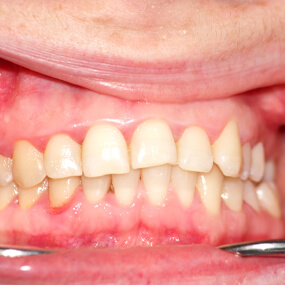Sleep Apnea Oral Appliances: Advantages and How to Use Them

If you snore, grind your teeth at night, or have obstructive sleep apnea (OSA), a custom-fit oral appliance is one of the effective options available to you. These appliances are relatively inexpensive and comfortable to use, and your mouthguard will keep your jaw in place and your airway open.
An alternative to a mouthguard is continuous positive airway pressure therapy. But many people find using a CPAP machine every night to be a hassle and the mask to be cumbersome and uncomfortable. Dental oral appliances, on the other hand, are much easier to use, and sleep physicians have noted the effectiveness of these appliances due to how willing patients are to continue with their therapies.
What Is a Sleep Apnea Oral Appliance?
Often called mouthpieces, mouthguards, and nightguards, sleep apnea oral appliances are designed to maintain an open airway as well as keep your teeth from grinding as you sleep. In design, these are quite similar to the mouthguards athletes use to protect their teeth, gums, tongue, and other oral soft tissues.
These oral appliances are custom-made for the individual patient by a dentist who has particular training in dental sleep medicine. According to the American Academy of Dental Sleep Medicine, there are approximately 2,800 AADSM-qualified dentists throughout the world. Dentists with this designation are qualified to fit you for a personalized oral appliance.
There are approximately 100 distinct types of sleep apnea oral appliances approved by the Federal Drug Administration to treat obstructive sleep apnea, snoring, and bruxism. Note that these devices are not approved for central sleep apnea, which is a nervous system disorder.
Your sleep medicine specialist will coordinate with your dentist to recommend the oral appliance type that is uniquely suited to you. But all of these devices share quite a bit in common:
- The fitting usually takes a few visits with your sleep medicine dentist. Your dentist has to examine your mouth, measure it, make a mold, and finally, adjust the resulting appliance.
- Once fitted, the oral appliance will force your lower jaw forward when you wear it. That will create the space needed at the back of the throat to ensure that you can breathe at all times.
- The shifting creates space for your tongue and other oral soft tissues. It eliminates snoring and obstructions, and it holds the teeth in place so that they do not grind.
Benefits of a Custom-Fit Nightguard
Many people who have mild to moderative obstructive sleep apnea, as well as patients who snore but have not been diagnosed with OSA, prefer to try a mouthguard before committing to a CPAP machine. Many sleep medicine specialists and dentists encourage this for a number of reasons:
- Compliance – Patients who have a nightguard made tend to use them. Studies show that nearly half of people prescribed a CPAP machine cease using them by week three. If your sleep medicine specialist recommends CPAP, there is certainly an adjustment period where you must get used to the mask as well as the upkeep required for the filters and tubes. That effort is well worth it for moderate to severe obstructive sleep apnea because CPAP is more effective than an oral device in those cases. However, for less severe cases or if you realize you will never acclimate to a CPAP machine, then an oral appliance may be the more practical option. In the end, the best treatment is the treatment you actually use.
- Ease of use – Oral appliances are simple. Most patients are already familiar with the concept. Many patients have worn similar mouthguards when participating in sports in high school and earlier. Upkeep is rather simple, and there are no replacement parts or other such considerations. You do not have to plug them into an outlet. There are no batteries to recharge. These are all considerations with a CPAP machine.
- Having an alternative – Even if you are prescribed a CPAP machine and dedicate yourself to the use of it, you will likely want a nightguard on hand, and your sleep medicine specialist and dentist will likely recommend it. There will be times when you cannot and will not wear the mask and will use the oral appliance instead. You will likely experience CPAP machine failure at some point and need to wait for a replacement or part.
- Affordability – Most medical insurance will cover both a sleep apnea mouthpiece and a CPAP machine. However, if you have to pay for it out of pocket, the mouthpiece is more affordable in the short-term and long-term.
- Silent operation – CPAP machines blow air throughout the night. You will eventually acclimate to that. But many patients and their partners are sensitive to it, and that acclimation can take a while. Mouthguards, on the contrary, are silent, and they eliminate the snoring that was likely present prior to treatment.
- Comfort – The reason so many patients are resistant to CPAP machine use is that they are uncomfortable. The mask touches your face, nostrils, head, and hair, and it can cause chafing, skin reactions, acne, and even ingrown hairs for those with beards. In contrast, an oral appliance is much more comfortable. It only engages with your mouth. Most patients take to them right away, and many find them soothing. A mouthpiece does not require you to adjust your sleep position. Some people who toss and turn cannot even use a CPAP machine for that reason. A mouthguard is also much more comfortable when you have a cold or the flu because it does not interfere with your nostrils.
- Easier to carry – Oral mouthpieces are much easier to carry. They even come with their own carrying cases. There is no concern about them triggering a TSA inspection at the airport. Even many people who use a CPAP machine at home opt to use a mouthguard when traveling for business or pleasure.
- Less conspicuous – A nightguard is much less conspicuous than a CPAP machine. You can use one without anyone really noticing. Of course, you should not let vanity, shyness, and so forth affect your health treatments, but in those scenarios where it does matter to you, a mouthguard will certainly be more your style.
Oral Appliances Can Be Used by People Who:
- Have mild to moderate obstructive sleep apnea
- Snore but not because of OSA
- Are traveling
- Cannot tolerate a CPAP mask
- Use CPAP and want a backup
Talk to your sleep medicine specialist and your sleep medicine dentist about your options. Each case is unique. It is also important to note that obstructive sleep apnea is a serious condition. If your doctor recommends a CPAP machine, then you should do everything you can to comply with that advice.
Signs You May Need a Nightguard
Beyond great oral health, another excellent reason to see your dentist on a regular basis is that he or she can recognize other health problems, including bruxism and indications of obstructive sleep apnea. You or a partner may also notice certain signs. You should then discuss them with your dentist, who may then refer you to a sleep medicine specialist for a final diagnosis. These signs include:
- Snoring
- Headaches
- Memory loss
- Problems concentrating
- Drowsy driving
- Excessive daytime fatigue
- Unwanted napping
- Insomnia or fragmented sleep
- Waking up with a sore throat
All of these problems can be caused by obstructive sleep apnea. You stop breathing intermittently throughout the night. You wake up intermittently, so you never get a full night’s rest.
Note that in order for a board-certified sleep specialist to provide you a final diagnosis, a sleep study will be required. Such a study requires you to be monitored overnight as you sleep. Even if the sleep apnea is known, the specialist must determine if the problem is mechanical, as with obstructive sleep apnea, or a symptom of a central nervous system disorder, which is rare but must be treated differently.
If your doctor determines that you have mild to moderate obstructive sleep apnea and prescribes oral appliance therapy, the good news is that the success rate is very high. In many cases, OAT is just as effective as using a CPAP machine and is recommended by the AASM in most cases.
Benefit From a Good Night’s Sleep
If you snore, grind your teeth or experience any of the other signs associated with obstructive sleep apnea, then you should schedule an appointment with your dentist as soon as possible. Jeffrey D. Clark, DDS, is a highly regarded sleep medicine dentist who works with sleep specialists in the Scottsdale area to evaluate, diagnose, and treat his patients. Schedule your appointment with Dr. Clark today. Call Scottsdale Cosmetic Dentistry Excellence at 480 585 1853.




